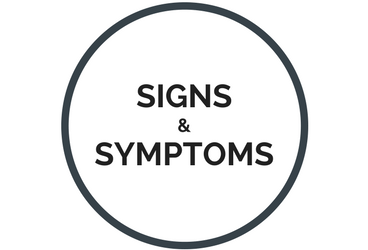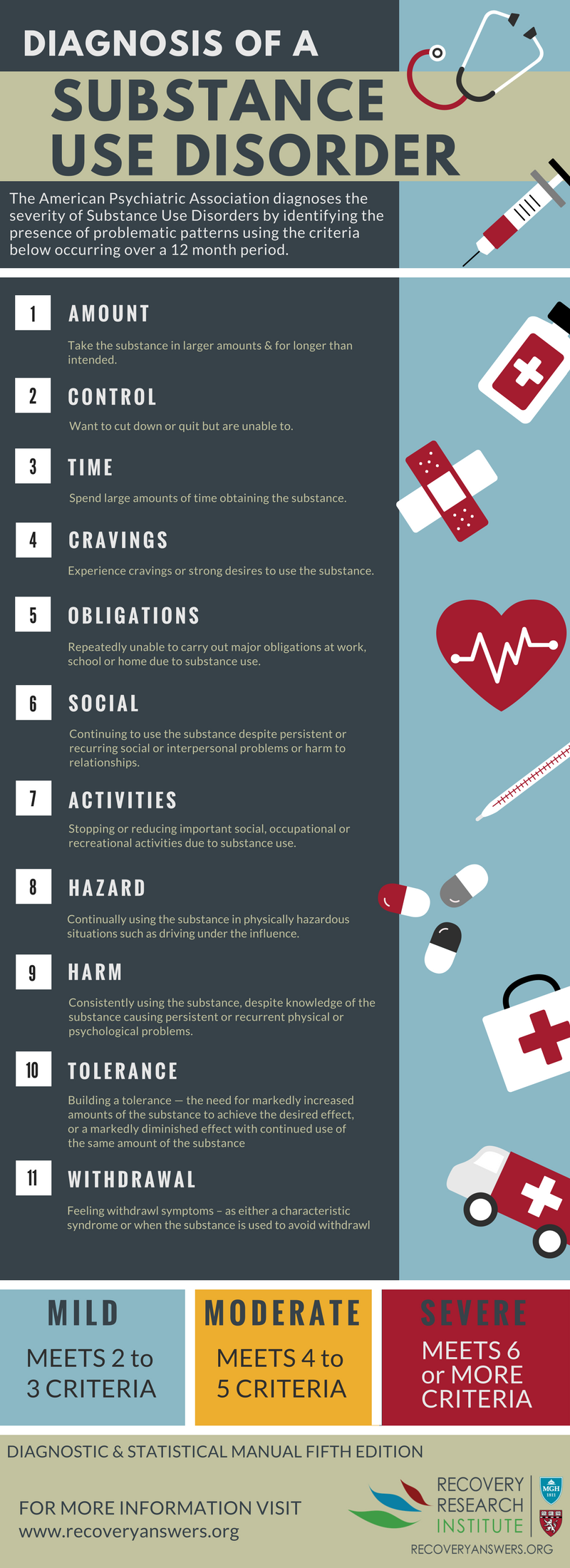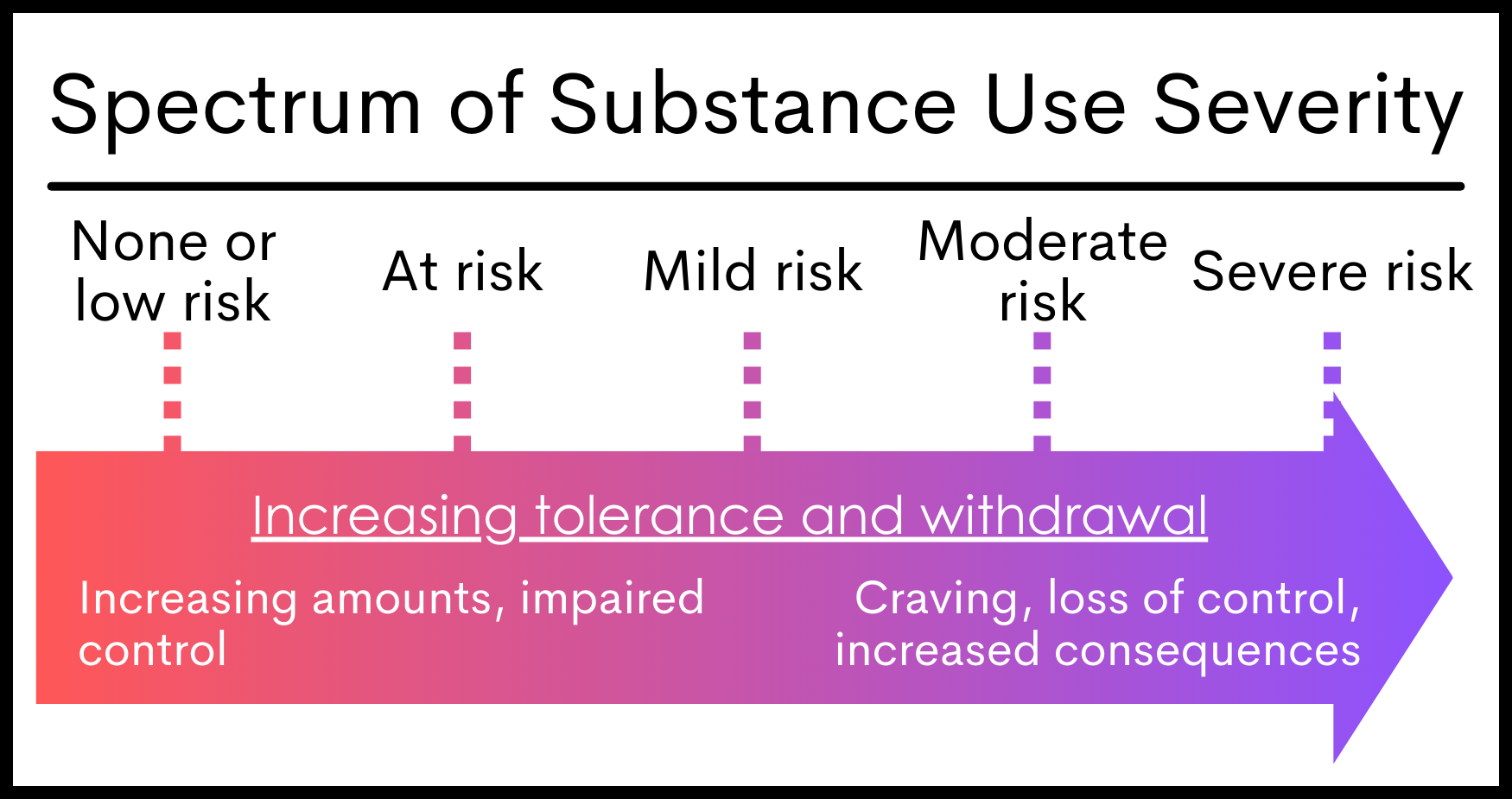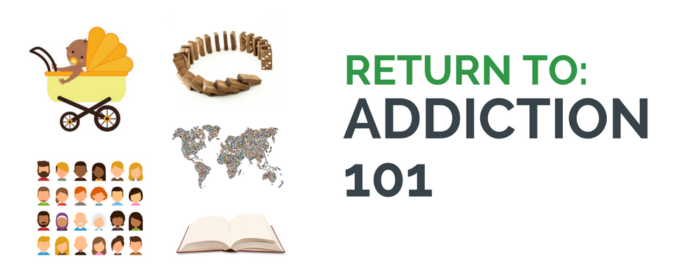
Substance Use Disorder Signs and Symptoms
Alcohol use disorder, and the various types of other drug use disorders (e.g., opioid, cocaine, cannabis), have the same signs and symptoms that all fall under the larger umbrella of “substance use disorder.”
ALL OF THESE DISORDERS HAVE:
- Signs (outwardly observable behaviors or consequences related to the use of the substance)
- Symptoms (personal, subjective experiences related to the use of the substance)
For example: a clustering of two or more of these signs and symptoms related to alcohol use would constitute an alcohol use disorder, two or more of these signs and symptoms related to opioid use would constitute an opioid use disorder.
SUBSTANCE USE DISORDER (ALCOHOL-SPECIFIC) SIGNS AND SYMPTOMS INCLUDE:
- Problems controlling alcohol use, drinking larger amounts, at higher frequency, or for longer than one intended
- Problems controlling alcohol use despite:
- The desire to cut down or quit
- The knowledge that continued alcohol use is causing problems such as:
- Persistent or reoccurring physical or psychological problems
- Persistent or reoccurring interpersonal problems or harm to relationships
- The inability to carry out major obligations at home, work, or school
- The development of:
- Cravings: A powerful psychological desire to consume alcohol or engage in an activity; a symptom of the abnormal brain adaptions (neuroadaptations) that result from addiction. The brain becomes accustomed to the presence of a substance, which when absent, produces a manifest psychological desire to obtain and consume it
- Tolerance: A normal neurobiological adaptation process characterized by the brain’s attempt to accommodate abnormally high exposure to alcohol. Tolerance results in a need to increase the dosage of alcohol overtime to obtain the same original effect obtained at a lower dose. A state in which alcohol produces a diminishing biological or behavioral response (e.g., an increasingly higher dosage is needed to produce the same euphoric effect experienced initially)
- Withdrawal symptoms: Physical, cognitive, and affective symptoms that occur after chronic use of alcohol is reduced abruptly or stopped among individuals who have developed tolerance to alcohol
- Alcohol use that leads to risky or physically hazardous situations (e.g., driving under the influence)
- Spending large amounts of time obtaining alcohol
- Reducing or stopping important social/occupational/recreational activities due to alcohol use
DIAGNOSIS OF A SUBSTANCE USE DISORDER


CITATIONS
American Psychiatric Association (2013). Diagnostic and statistical manual of mental disorders (5th ed.). Arlington, VA: American Psychiatric Publishing.


